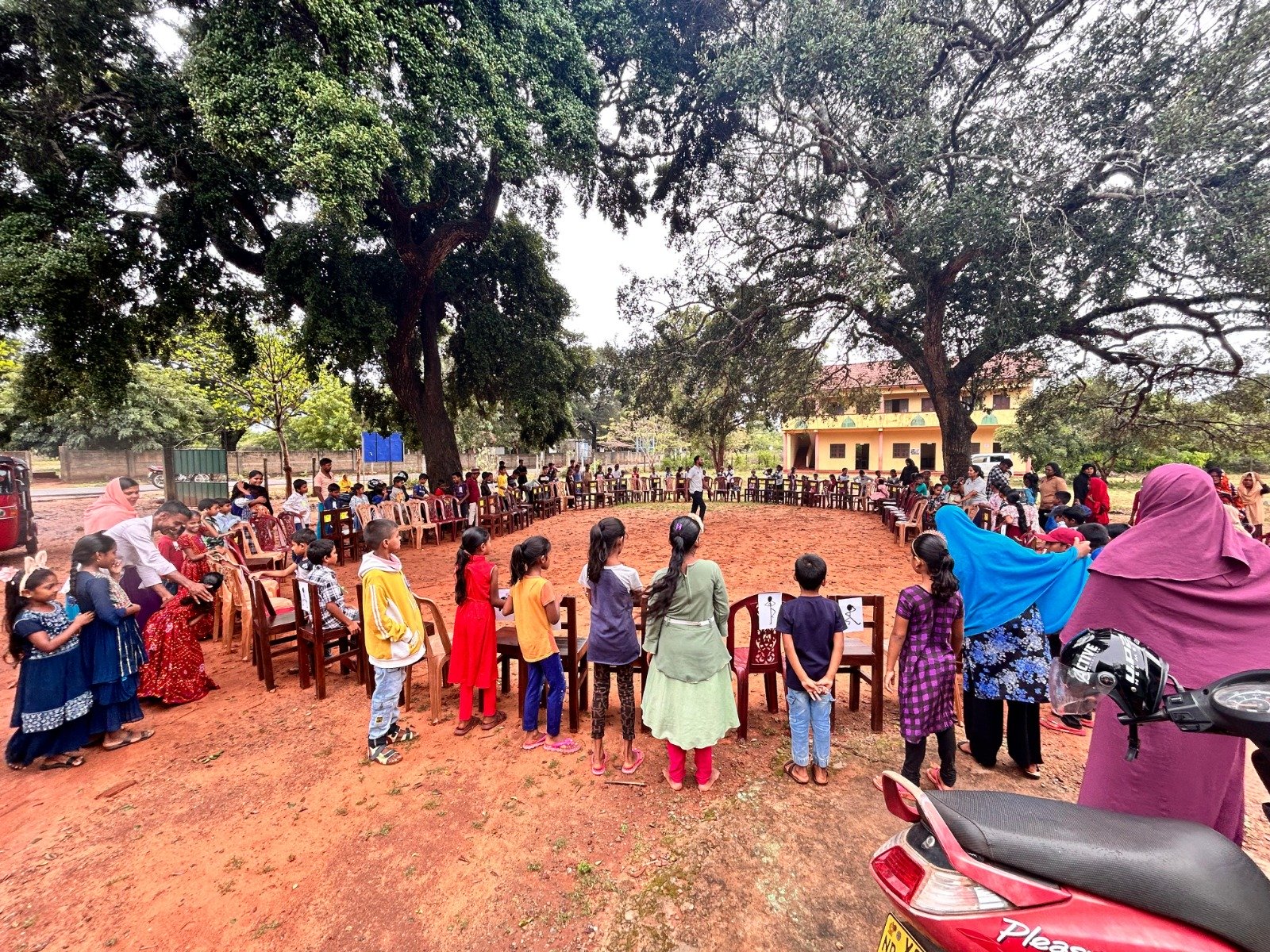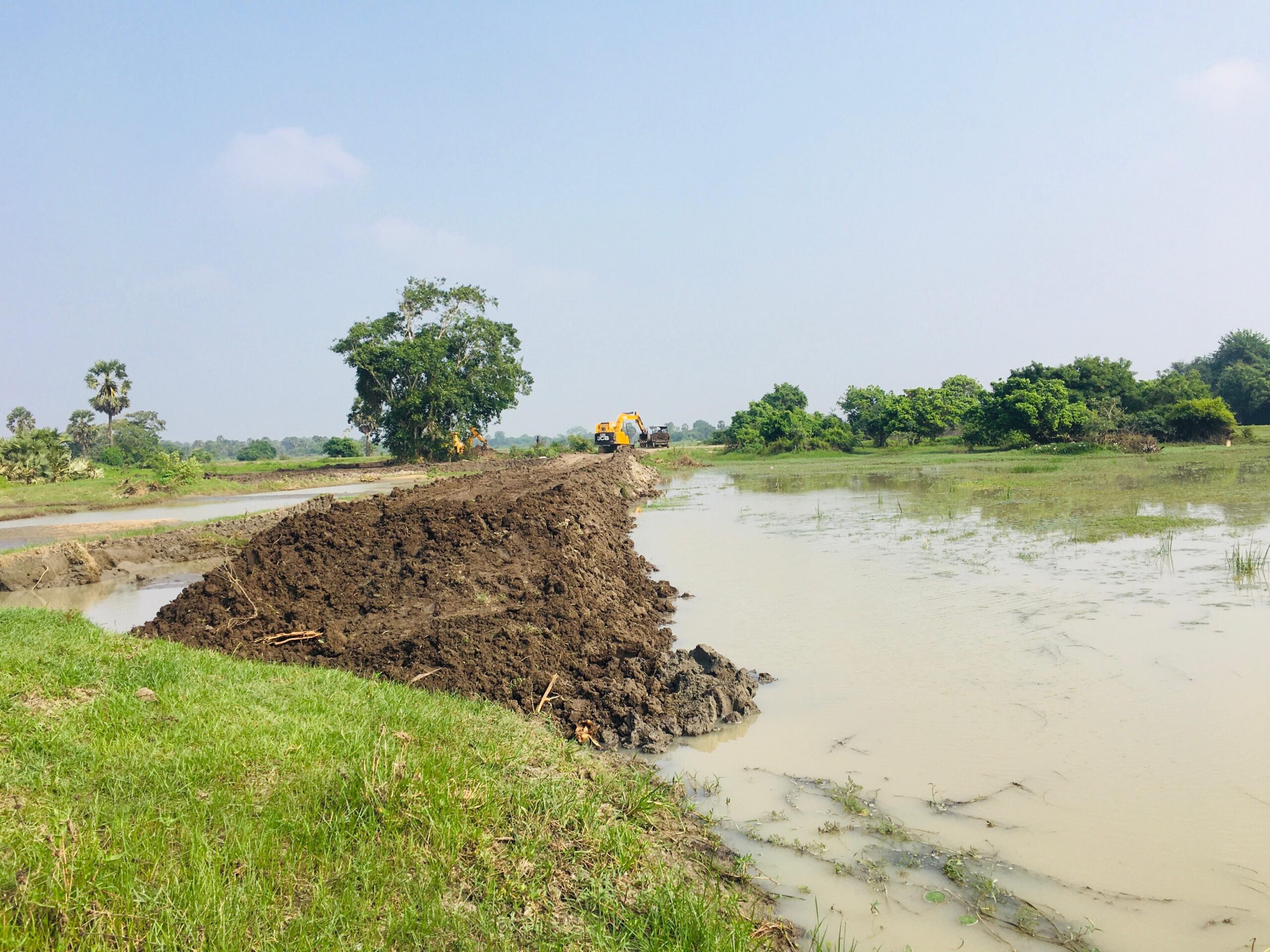
The northwestern coast of Sri Lanka, particularly the Mannar and Kilinochchi districts, is highly vulnerable to the impacts of climate change. While Sri Lanka contributes only a small fraction (0.03%) to global greenhouse gas emissions, Sri Lanka has consistently been placed among the top ten countries at risk from extreme weather events (Germanwatch, 2021). The most common hazards in Sri Lanka are seasonal and localized flooding and landslides across the country, followed by cyclones, storm surges, droughts, and high winds. The Disaster Management Act of 2005 recognizes various natural and man-made hazards, including cyclones.
Historically, Mannar experienced significant cyclones and floods in 1964 and 1978. More recently, the region faced the impact of minor tropical cyclone Burevi in 2020, and again in 2024 with minor tropical cyclone Fengal, which affected over 14,000 families (around 50,000 people). These events highlight the increasing frequency of climate-related challenges in the region.
Beyond cyclones and floods, communities in Kilinochchi and Mannar have also suffered from crop failure due to both droughts and floods. Fishing communities have seen their properties and livelihoods damaged by strong winds and coastal erosion. These climate-related challenges not only threaten livelihoods but also hinder long-term development. In the face of these growing threats, it is crucial to integrate climate action into community development projects.
OPEnE, founded in 2016 and based in Mannar, is committed to fostering sustainable development and building resilience in these communities. We believe that by empowering communities with the knowledge, skills, and tools to address climate change, we can create lasting change and promote a sustainable future. OPEnE adopts a programmatic approach, ensuring that all our projects contribute to our main goal and complement each other.
OPEnE addresses climate challenges through several key initiatives:
Environmental Conservation Education: We conduct environmental awareness sessions integrated into all our projects, educating communities on sustainable practices to promote environmental stewardship and conservation. This includes our work on plastic waste collection for recycling (PET bottles).
Sustainable Fisheries and Aquaculture: OPEnE provides training and support to fishing communities, promoting sustainable resource management and combating illegal fishing practices to ensure healthier marine ecosystems. We also empower fisher communities in drafting and implementing Marine Sustainability Action Plans (MSAPs). As part of these plans, communities have established no-fishing zones near mangroves, recognizing the importance of these areas for feeding and breeding.
Disaster Risk Reduction: OPEnE has started actively working on disaster risk reduction and resilience building through our latest program. We have initiated discussions with key government officials and engaged with communities on the ground, assessing disaster-affected areas. This work is ongoing, with proposal development and community assessments started as of the end of March 2025.
Food Security and Resilience Building: OPEnE actively promotes Food Forestry as a resilience-building strategy for economic development and climate action. This initiative enhances food security and provides a sustainable solution to mitigate the impact of climate-related disasters. We are also planning future projects focusing on mangrove plantation and beach cleaning.
Examples
OPEnE’s ongoing efforts to develop a project on “Reducing climate induced disaster risk in communities through building resilience” in the Mannar district demonstrate our integrated approach. This initiative focuses on enhancing community preparedness and adaptive capacity to climate-related disasters such as floods, cyclones, and storm surges.
Our initiatives also empower Self-Help Groups (SHGs) to promote economic resilience and environmental sustainability. For example, in the fourth quarter of 2024, OPEnE made 200 monitoring visits, 15 family visits, 30 individual facilitations, and 10 conflict resolution events to improve clarification in engagement, accounting system improvement and documentation improvement in Self Help Groups (SHGs) and financial stability.
Conclusion
The patterns are clear: our climate is changing, and the need for action is more urgent than ever. Integrating climate action into community development is essential for building sustainable and resilient communities. OPEnE is committed to empowering communities in Mannar and Kilinochchi to address these challenges head-on and build a better future. We are getting ready to scale up our efforts, and you can join us in making a lasting difference in the lives of vulnerable communities and contributing to a more sustainable world.
References
- Germanwatch. (2021). Global Climate Risk Index 2021.
- OPEnE Proposal Document. (2025). Reducing climate induced disaster risk in communities through building resilience.



